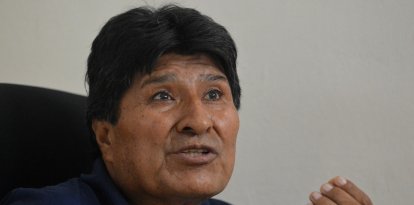Colombian Senate blocks Petro's socialist government’s referendum, which would have imposed radical reforms
With his initiatives rejected in Congress, the president is now betting on social pressure in the streets.

Colombian President Gustavo Petro
In a day fraught with political tensions, the Colombian Senate rejected by majority vote President Gustavo Petro's request to convene a popular consultation. With 49 votes against and 47 in favor, the plenary denied the required endorsement to take the proposal to the polls.
The executive proposed this consultation as a way out after the collapse of labor reform in the Seventh Committee of the Senate and as a way to validate its project directly at the ballot box. However, for sectors of the opposition, the initiative was nothing more than an attempt by the president to skip opening a path towards direct control of the political debate, with a view even to the 2026 elections.
The result was celebrated by the opposition as a political setback for President Petro and his Historic Pact coalition, while sectors of the ruling party denounced alleged irregularities in the procedure.
Accusations from abroad and call for mobilization.
The result provoked an immediate reaction from abroad. From China, where he is on a diplomatic tour, President Petro accused the Senate of having committed "fraud." Through his X account, he denounced that the vote was irregularly closed just when, according to him, the "yes" votes were beginning to gain ground.
"The people must decide," Petro wrote, immediately calling on unions, peasant organizations, indigenous communities, and youth groups to organize in what appears to be a call for social mobilization as an alternative to the legislative blockade.
Scandal in the plenary: the Minister of the Interior stars in a quarrel
The atmosphere in the Senate became even more tense when the minister of the Interior, Armando Benedetti, confronted the secretary of the Senate, Diego Gonzalez, during the vote count. In images transmitted on social media, the official is seen upset, hitting the table and facing the secretary, a situation that led Senator María José Pizarro to intervene to avoid a direct confrontation.
Later, Benedetti himself acknowledged that his reaction was "airy" and accused irregularities in the change of a key vote and in the regulatory waiting time. According to his version, the 20 minutes stipulated by law were not respected.
Another senator who witnessed the scene warned that the physical integrity of the secretary was at risk and assured that he had to intervene to prevent the minister from reaching the aggressor.
Leak confirms social pressure strategy
Minutes after the outcome, a report published by the magazine Semana assures that Minister Benedetti sent messages to President Petro from his seat. In one of the texts, he asked, "Who is calling the general strike?" The conversation, which also included previous reports of political negotiations with allied parties, revealed the government's intention to move quickly from the institutional route to a strategy of pressure on the streets.
Labor reform, revived through an appeal
Despite the setback for the consultation, the labor reform was not completely buried. In the same session, the Senate plenary approved an appeal that will allow the bill to be debated again in a different committee than the one that had shelved it. This decision was the result of an agreement between diverse political sectors, which, although they rejected the referendum, decided not to completely close the discussion of reform.
Increasing institutional confrontation
In the midst of this confrontation, there is growing concern about the institutional course of the country, while the government is increasingly betting on the populace to overcome its defeats in Congress.


























